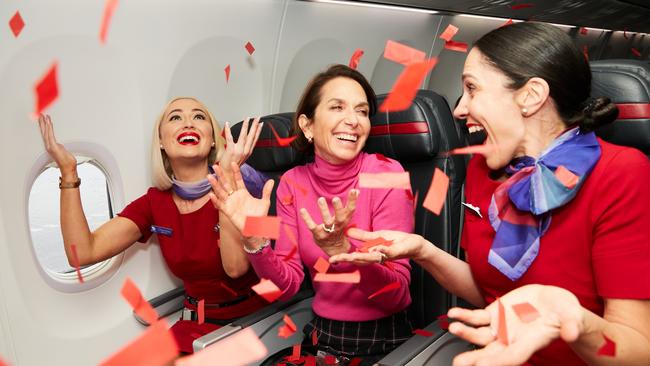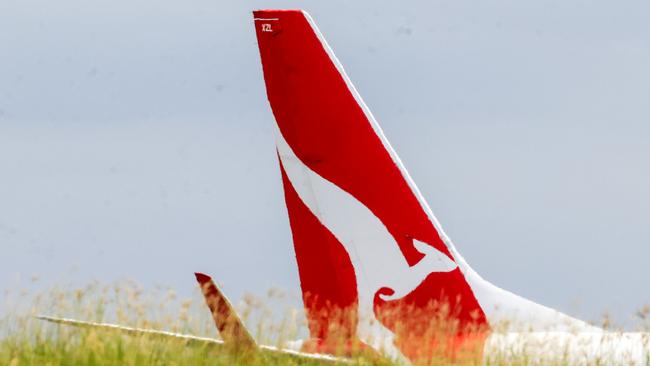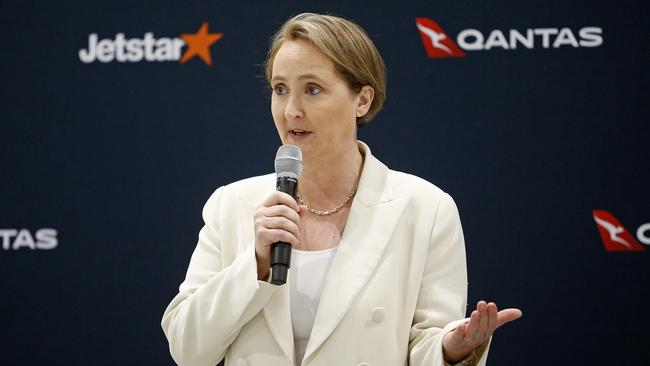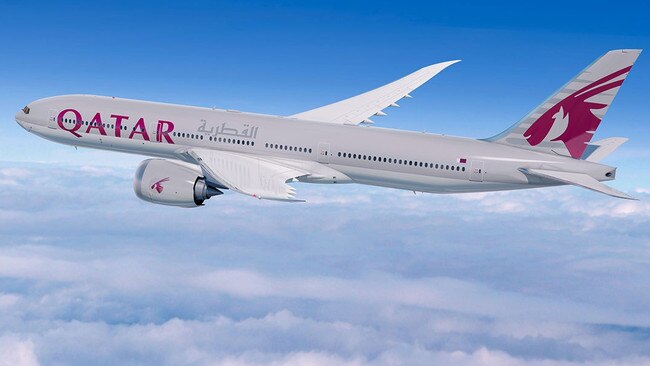
This deal between Virgin Australia and Qatar Airways is exactly what the nation’s biggest carrier doesn’t want.
The Flying Kangaroo already has 35+ competitors flying to Europe but none compare in quality with the offering of Qatar.
This will mean a hit to yields, and Qantas is in a difficult position to complain after just posting two consecutive years of record profits. Qatar is a much better airline to fly internationally. The two airlines are similarly priced, yet Qatar’s Qsuite for business class is more comparable to Qantas’ first class. Economy has an inch more leg room, depending on the aircraft.
The deal means Virgin’s Velocity program – which had become a little aimless since the airline relaunched post-collapse with hardly any international routes – is also suddenly appealing due to the prospect of earning points and using them for European jaunts.
And as an employer, Virgin Australia suddenly has greater appeal, as staff are able to access an attractive travel network.

The deal also means the long-awaited announcement of who will replace Jayne Hrdlicka as chief executive is imminent. It’s also understood the Qataris will be offered two seats on Virgin’s board.
For Hrdlicka it will no doubt come as a relief. The CEO, who brought the airline back to profitability for the first time in 10 years, has endured a difficult few years with the death of her husband and, more recently, her father.
The IPO that she and her team had worked so hard to produce was postponed when equity markets shut down, and her private equity bosses at Bain Capital had started to turn the screws when on-time performance suffered and cabin crew threatened action.
Now the former boss of Qantas low-cost unit Jetstar will earn a massive equity kicker from the sale of a stake to Qatar and will be able to say that she left the business that she took out of administration in solid shape.
For Qantas this means its non-stop Project Sunrise strategy has never been more important. The airline plans to start flying non-stop services from the east coast of Australia to European destinations as well as cities such as New York in about 12 months’ time.
Qantas can’t compete with Qatar on product offering because of its cost base. Fuel and staff each account for about 30 per cent of the airline’s costs and the Australian airline pays much more for both of those.
Mind you, Qantas has a profit-sharing arrangement on some services with Emirates, which also enjoys lower costs for fuel and staff.

Of course, the deal for Qatar to buy 25 per cent of Virgin is dependent on Foreign Investment Review Board and competition regulator approvals, but they are not likely to be a problem, particularly since the debacle surrounding the Australian government’s rejection of more Qatar flights into this country last year.
There was a massive backlash against that decision by an Australian public fed up with paying record high airfares due to a lack of competition.
Qatar found out it had been blocked by reading about it in the Australian media. Making matters worse, Transport Minister Catherine King’s rationale for blocking Qantas’s biggest competitive threat seemed to vary depending on the day.
A Senate inquiry was held to ascertain whether it came down to undue influence by Qantas. But the government managed to avoid spilling the beans, citing “sensitive” information.
Behind the scenes, several factors were at play.
Qantas undoubtedly did weigh in, pushing the angle that it should not face a tough competitor like Qatar as it was just emerging from the Covid-19 pandemic and about to face a big ramp-up in costs due the federal government’s Same Work Same Pay regulation. These rules were designed with Qantas in mind – to stop the carrier hiring staff through separate entities. As a result, the airline has just agreed a 30 per cent pay rise for short-haul pilots and cabin crew.
It currently faces industrial action from half of its engineers who want a pay rise of 25 per cent.
It’s also understood that back when Prime Minister Anthony Albanese was transport minister he clashed with Qatar’s former CEO, Akbar Al Baker, over comments the Qatari boss made about Western Sydney Airport and the need to get rid of the curfew at Sydney International Airport.

It’s notable that the announcement of the Qatar-Virgin deal referred to the benefits that may come from the soon-to-be-opened Western Sydney Airport, and follow a high-level visit to Australia by Qatari government officials just a few weeks ago.
The Australian government took a dim view of the Qatar government when a group of Australian women were removed from a plane headed for Sydney and subjected to a strip-search after a premature baby was abandoned in the airport at Doha.
Some also say that Qatar’s links with Hamas were also a factor, but given Qatar is a friend of the US and there is a large American navy base at Doha, this seems a weak argument.
If the deal is approved, Virgin will wet lease aircraft from Qatar initially, which would mean passengers heading to Europe will fly on Qatar aircraft with Qatar crew (Virgin currently doesn’t have the planes nor the trained staff to operate them).
It would be similar to the deal Qantas currently has with FinnAir, although on those flights the FinnAir crew serves Qantas meals.
Further down the track, Qatar and Virgin would seek domestic and international approval for a joint services agreement (like the one Qantas used to have with British Airways and now has with Emirates) which would allow profit sharing.




Qantas boss Vanessa Hudson has a new fight on her hands.